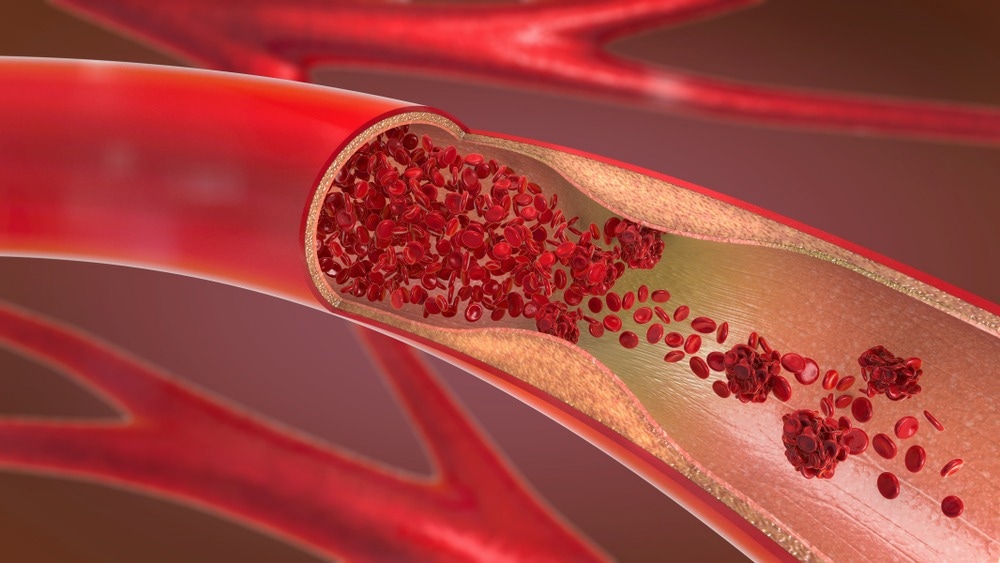Reviewed by Danielle Ellis, B.Sc.May 30 2023
The National Institute for Health and Care Research (NIHR) Leicester Biomedical Research Centre (BRC) and Universite Paris Cite have identified new genes linked with an increased incidence of a type of heart attack that primarily affects young to middle-aged women, with support from global partners in Canada, the United States, and Australia. The findings were published on May 29th, 2023, in Nature Genetics.

Image Credit: Christoph Burgstedt/Shutterstock.com
SCAD, or Spontaneous Coronary Artery Dissection, is caused by a bruise or bleed in the wall of a coronary artery, cutting off blood flow to a part of the heart. This results in a heart attack. SCAD, in contrast to other forms of heart attack, is most common in women under the age of 60 and is a primary cause of heart attacks during pregnancy. Furthermore, those who have had a SCAD are generally healthy, and SCAD can occur more than once.
Until today, nothing is known about why a SCAD occurs, which generally occurs unexpectedly, making it now impossible to prevent.
The investigators provide a genome-wide association meta-analysis encompassing 1,917 SCAD cases and 9,292 European ancestry controls. They discovered 16 genes linked to an increased risk of SCAD. The identified genes are involved in mechanisms that control how cells and connective tissue hold together, as well as how blood clots when tissues bleed.
Surprisingly, the researchers discovered that, while many genes associated with an increased risk of SCAD are also associated with an increased risk of traditional coronary artery disease (CAD), they had the opposite impact. This suggests that patients with SCAD have some genetic protection against the risk of CAD, proving that these diseases are substantially distinct. The only risk factor that appeared to be shared was genetically increased blood pressure.
This research confirms that there are multiple genes involved in determining the risk of a person having a SCAD. These genes give us the first key insight into the underlying causes of this disease and provide new lines of enquiry, which we hope will guide future new treatment approaches. We are grateful to Beat SCAD, the NIHR, and the British Heart Foundation for funding our work, to our international partners for their collaboration and for all the patients with SCAD, and healthy volunteers who gave their time to advance this research.”
Dr David Adlam, Associate Professor, Acute and Interventional Cardiology, University of Leicester
Dr David Adlam is also an interventional cardiologist at the University Hospitals of Leicester NHS Trust, and the lead author of the study.
Source:
Journal reference:
Adlam, D., et al. (2023). Genome-wide association meta-analysis of spontaneous coronary artery dissection identifies risk variants and genes related to artery integrity and tissue-mediated coagulation. Nature Genetics. doi.org/10.1038/s41588-023-01410-1.